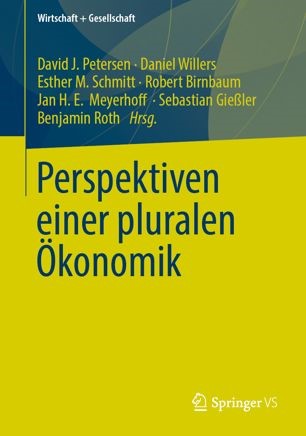On the Conceptualizability of a Post-Growth Economy The Limits of the Economic Mainstream and the Potential of Theoretical Multiperspectivity
The assumption that economic growth per se is desirable is deeply rooted in the mainstream of economics. Stable zero growth is, however, principally possible within influential neoclassical theories, for example by redirecting technological change towards increasing resource productivity rather than labour productivity, reducing the level of investment and/or labour supply. In explaining these mechanisms, however, the mainstream generally remains vague. At the same time, other important aspects are neglected for stable zero growth in mainstream theories. A comprehensive analysis of a post-growth economy therefore requires a variety of approaches and theoretical perspectives. Only in this way can aspects such as the role of the monetary system, profits, interest rates, social systems, reproductive work, private property, competition, political economy and power be captured in their entirety.



